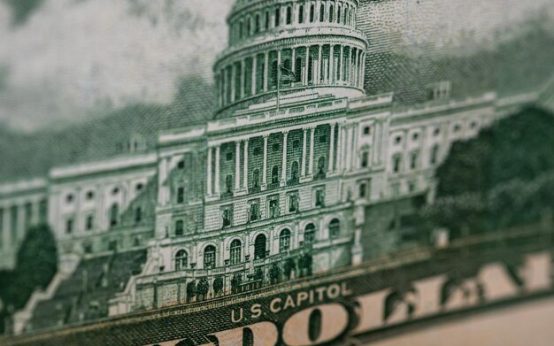The proposed federal tax overhaul for 2025 involves potential changes to individual and corporate tax rates, deductions, and credits, aiming to simplify the tax code and stimulate economic growth, with ongoing debates and negotiations shaping the final legislation.
The clock is ticking towards 2025, and with it comes the potential for significant changes to the U.S. federal tax landscape. What’s the Latest on the Proposed Federal Tax Overhaul for 2025? Understanding the proposed changes and their potential impact is crucial for individuals, businesses, and investors alike.
Understanding the Impetus Behind the 2025 Tax Overhaul
The prospect of a federal tax overhaul in 2025 isn’t happening in a vacuum. It’s rooted in the expiration of key provisions from the Tax Cuts and Jobs Act (TCJA) of 2017. As these provisions sunset, Congress has a window to reassess and potentially restructure the tax code.
The Sunset of the TCJA
The TCJA, enacted in 2017, brought about sweeping changes to both individual and corporate taxes. However, many of the individual tax provisions were designed with a built-in expiration date. This means that without congressional action, these provisions will revert to pre-TCJA levels in 2025.
- Individual tax rates are set to increase across various income brackets.
- The standard deduction, which was significantly increased under the TCJA, will revert to its prior, lower level.
- Provisions related to deductions, such as the state and local tax (SALT) deduction, are also slated to change.
The impending sunset of the TCJA creates both a challenge and an opportunity for lawmakers. It necessitates a comprehensive review of the tax code while also providing a chance to address perceived shortcomings or unintended consequences of the 2017 legislation.

Key Areas Targeted for Potential Reform
As discussions surrounding the 2025 tax overhaul intensify, several key areas have emerged as focal points for potential reform. These include individual income taxes, corporate taxes, capital gains taxes, and estate taxes.
Individual Income Taxes
One of the most significant aspects of the proposed tax overhaul involves potential changes to individual income tax rates. The TCJA lowered tax rates across the board, but these cuts are set to expire. Debates center on whether to extend these cuts, modify them, or allow them to expire altogether.
Moreover, discussions also revolve around deductions and credits available to individuals. Lawmakers may consider expanding or limiting certain deductions, such as the child tax credit or the earned income tax credit, to achieve specific policy objectives.
Corporate Taxes
The TCJA significantly reduced the corporate tax rate from 35% to 21%. While there’s generally less appetite for a dramatic increase in the corporate tax rate, some proposals suggest a modest adjustment to generate additional revenue. There are ongoing conversations about international tax provisions, particularly those related to multinational corporations’ offshore earnings.
Ultimately, the decisions made regarding corporate taxes will have far-reaching implications for business investment, job creation, and economic competitiveness.
Potential Economic Impacts of the Tax Overhaul
A federal tax overhaul of the magnitude being discussed for 2025 could have substantial effects on the U.S. economy. Economists and policymakers are closely examining the potential impacts on economic growth, inflation, and income distribution.
Impact on Economic Growth
The economic growth implications of a tax overhaul are a subject of intense debate. Proponents of tax cuts argue that they stimulate economic activity by incentivizing investment and job creation. Critics, on the other hand, contend that tax cuts disproportionately benefit the wealthy and may not lead to broad-based economic growth.
How the tax overhaul is structured—whether it prioritizes tax cuts for businesses or individuals, and how it addresses potential deficits—will significantly influence its impact on economic growth.
Impact on Inflation
Another critical consideration is the potential impact of the tax overhaul on inflation. If the tax changes lead to increased demand without a corresponding increase in supply, it could exacerbate inflationary pressures. Conversely, if the tax changes are designed to curb demand, they could help to alleviate inflation but might also slow down economic growth.

Navigating the Uncertainty: Strategies for Individuals and Businesses
Given the uncertainty surrounding the final form of the 2025 tax overhaul, individuals and businesses should take proactive steps to prepare for potential changes. This includes staying informed about legislative developments, reassessing financial plans, and seeking professional advice.
Strategies for Individuals
For individuals, strategies may include adjusting investment portfolios to account for potential changes in capital gains tax rates, accelerating or deferring income to optimize tax liabilities, and maximizing contributions to tax-advantaged retirement accounts.
- Review your current tax situation and project potential changes under different scenarios.
- Consult with a qualified tax advisor to develop a personalized tax plan.
- Consider adjusting your withholdings to reflect anticipated tax changes.
Strategies for Businesses
Businesses also need to assess the potential impact of the tax overhaul on their operations. This may involve reevaluating investment plans, adjusting pricing strategies, and exploring opportunities to optimize their tax positions. Businesses need to consider scenarios about corporate tax rates, business deductions, and international tax provisions.
Consulting with tax professionals and financial advisors can provide businesses with valuable insights and guidance.
Ultimately, proactive planning can help individuals and businesses navigate the complexities of the tax overhaul and minimize potential disruptions.
The Role of Political Factors and Negotiations
The final shape of the 2025 tax overhaul will depend heavily on political factors and negotiations within Congress. Given the closely divided nature of the U.S. political landscape, reaching a bipartisan agreement on tax reform may prove challenging.
Potential Compromises and Trade-offs
To secure passage, lawmakers may need to make compromises and trade-offs on various aspects of the tax overhaul. This could involve adjusting tax rates, modifying deductions and credits, or incorporating specific policy provisions to garner support from different factions.
Impact of the Upcoming Elections
The outcome of the upcoming elections could also significantly influence the direction of the tax overhaul. A change in control of either the House or the Senate could alter the priorities and negotiating positions of the parties involved.
Keeping a close eye on political developments and understanding the dynamics at play in Congress will be crucial for anticipating the final outcome of the tax overhaul.
Expert Opinions and Predictions on the Tax Overhaul
As the debate over the 2025 tax overhaul intensifies, various experts and analysts are weighing in with their opinions and predictions. These insights can offer valuable perspectives on the potential direction and impact of the tax changes.
Insights from Economists and Tax Policy Experts
Economists are offering diverse perspectives on the potential economic effects of the tax overhaul. Some argue that tax cuts will spur economic growth, while others warn of potential inflationary pressures and increased income inequality.
Tax policy experts are closely examining the technical aspects of the proposed changes, assessing their complexity, fairness, and potential for unintended consequences.
Predictions on the Likelihood of Major Changes
Predicting the final outcome of the tax overhaul is a challenging task, given the many moving parts involved. However, some analysts suggest that a comprehensive, bipartisan agreement may be difficult to achieve, leading to a more limited set of changes.
Remaining informed about expert opinions and predictions can help individuals and businesses better prepare for the range of potential outcomes.
In conclusion, the proposed federal tax overhaul for 2025 is a complex and multifaceted issue with far-reaching implications for individuals, businesses, and the economy as a whole.
| Key Point | Brief Description |
|---|---|
| 💰 TCJA Sunset | Key provisions from the 2017 Tax Cuts and Jobs Act are expiring. |
| 📈 Economic Impact | The overhaul could affect economic growth, inflation, and income distribution. |
| 💼 Business Strategies | Businesses should reassess plans and optimize tax positions. |
| 🗳️ Political Factors | Political negotiations will heavily influence the final outcome. |
[Título da seção FAQ em en-US]
▼
The TCJA was a major tax reform law enacted in 2017 that made significant changes to both individual and corporate income taxes, many of which are set to expire in 2025.
▼
Key provisions of the TCJA are set to expire, necessitating congressional action to address expiring tax laws and restructure the tax code for future needs.
▼
Individual taxpayers could experience changes in tax rates, deductions, and credits, which could affect their overall tax liability and financial planning strategies.
▼
Businesses may see adjustments in corporate tax rates, business deductions, and international tax provisions, influencing investment and operational decisions.
▼
Individuals and businesses should stay informed, reassess financial plans, and consult tax professionals to navigate potential changes effectively and proactively.
Conclusion
Staying informed, seeking expert advice, and proactively adjusting financial strategies can provide a solid foundation for navigating the changes ahead and making well-informed decisions in the evolving tax landscape.

 SecurityBriefings: How to Stay Ahead of Cyber Threats
SecurityBriefings: How to Stay Ahead of Cyber Threats  PolicyAlerts: Stay Updated on Key Government Changes
PolicyAlerts: Stay Updated on Key Government Changes  Federal Tax Overhaul 2025: Key Changes & What It Means For You
Federal Tax Overhaul 2025: Key Changes & What It Means For You